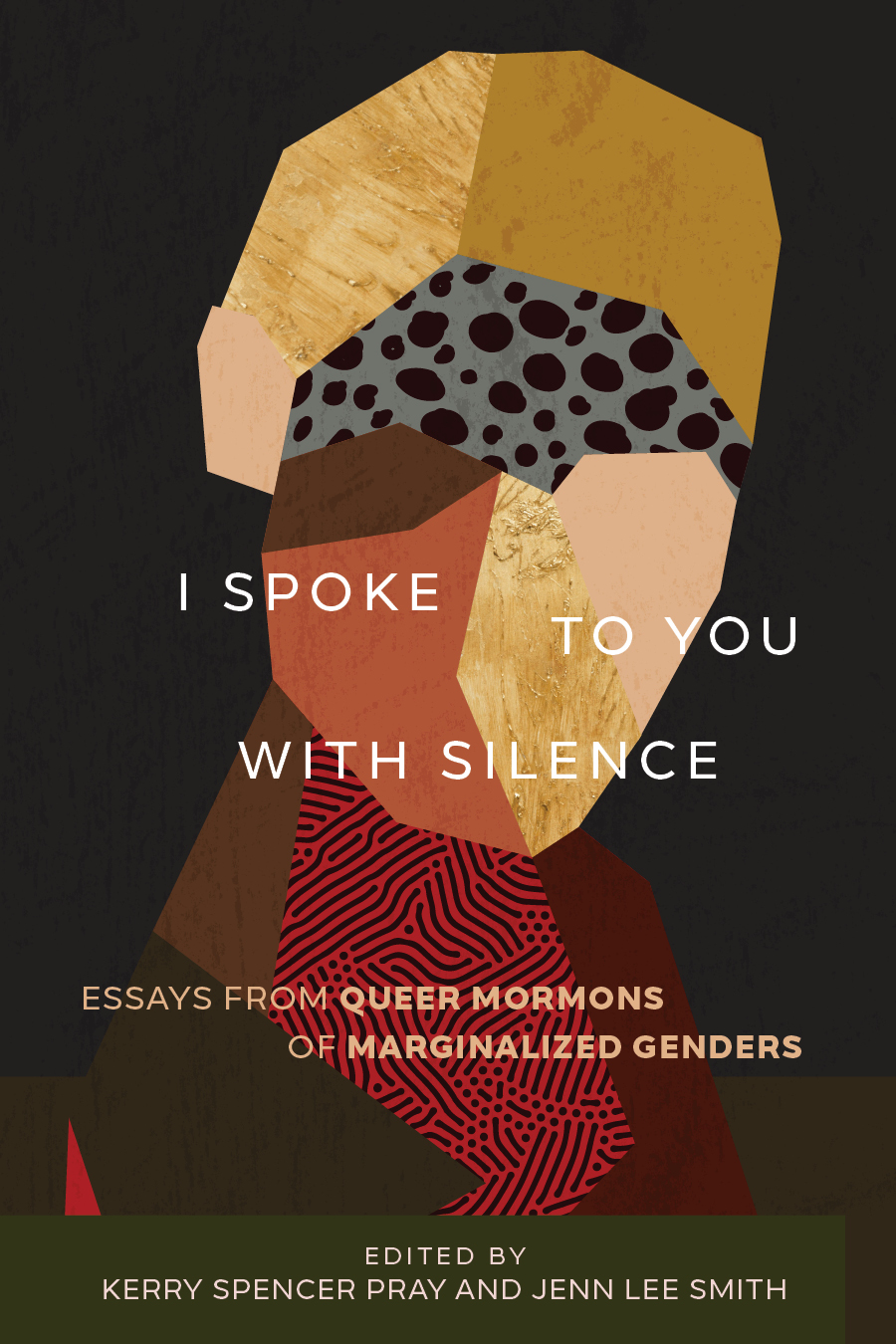
Review
Title: I Spoke to You With Silence: Essays from Queer Mormons of Marginalized Genders
Editors: Kerry Spencer Pray and Jenn Lee Smith
Publisher: University of Utah Press
Genre: Essay Collections
Year Published: 2022
Number of Pages: 202
Binding: Paperback
ISBN: 978-1647690793
Price: $24.95
Reviewed by Conor Hilton for the Association for Mormon Letters
I Spoke to You With Silence: Essays from Queer Mormons of Marginalized Genders is a beautiful, haunting, hopeful, and absolutely necessary book. Kerry Spencer Pray and Jenn Lee Smith gather 39 personal essays from a wide range of authors into four distinct sections for the collection. Each section begins with an introduction that offers some scholarly context for the importance of the ideas and themes found in the essays in that section, as well as offering some more academic and theoretical tools for engaging with the stories presented here.
Silence’s four sections are I. Essays on Identity, II. Essays on Relationships, III. Essays on Shame, Suicide, and the Closet, and IV. Essays on the Church. The sections are roughly equivalent in length.
The book appears to have a few different audiences in mind. First, a more academic-oriented audience, somewhat removed from Mormonism—demonstrated by publishing with a university press, including clear and precise footnotes to explain various terms second-nature to Mormons, and the various introductions throughout the book. Second, audiences interested in queer personal narratives and queer theory with a lived history/ethnography emphasis. Third, queer Mormons and allies. The needs of these audiences differ some, but largely not in mutually exclusive ways. I did find myself, somewhat strangely, feeling a mild alienation from the text whenever I encountered a footnote about the Hill Cumorah or “The Family: A Proclamation to the World,” but I recognize the necessity and value of these footnotes for other readers, who would otherwise miss out on some of the importance of various references.
Like most multi-author edited collections, there is a range of writing styles and abilities on display in the essays gathered here. Naturally, some of the essays were more personally affecting for me than others, though I appreciated and found all of them valuable (even when my own stylistic preferences would have pushed them into slightly different directions). That said, there are a handful of essays here that are so remarkably well-written they took my breath away—namely, “On Cleaving” by Kerry Spencer Pray; “I Give You a Name (& This Is My Blessing)” by Aisling “Ash” Rowan; “I Do Not Sing for My Husband” by Jenny Smith; “The Ocean That Shaped Me” by Abby Kidd; and “My Lord Has Come” by Becca Barrus.
Many of the other essays in Silence gave me images, ideas and stories that I haven’t been able to shake from my mind. Mette Harrison’s experience with gender, Rebecca Moore’s thoughts on the “Rebecca Bubble,” Jaclyn Foster’s image of God sitting in her kitchen, Judith Mehr’s life story, and a young mother passing off her newborn baby and subsequently filling Kaja M. Kaniewska with grace and love.
The stories shared in this collection reveal the wide-ranging diversity of queer Mormon experiences. Throughout the essays, I was struck by ways in which the stories both matched and differed from my own queer Mormon experience, and I hope that reading the collection in its entirety can give us all a little more caution before assuming things about our queer Mormon brothers, sisters, siblings, and friends, as well as growing our empathy for the varieties of pain, difficulty, and suffering that our queer Mormon comrades experience. And importantly, recognizing the joy that they experience too—something I think is too often ignored, which is highlighted in palpable ways throughout the collection.
I Spoke to You with Silence is not an easy book to read, but it is a beautiful and powerful one. I am grateful for the diversity of voices included here. This book is a powerful step to expand the conversation about Mormon queerness beyond the often white, gay men that have historically dominated that space. The collection includes a couple of pieces written initially in a language other than English, with both the original and then an English translation included. I Spoke to You with Silence emphatically demonstrates that there is a richness of queer Mormon experiences waiting to be heard — I hope that we have the ears to hear them.
